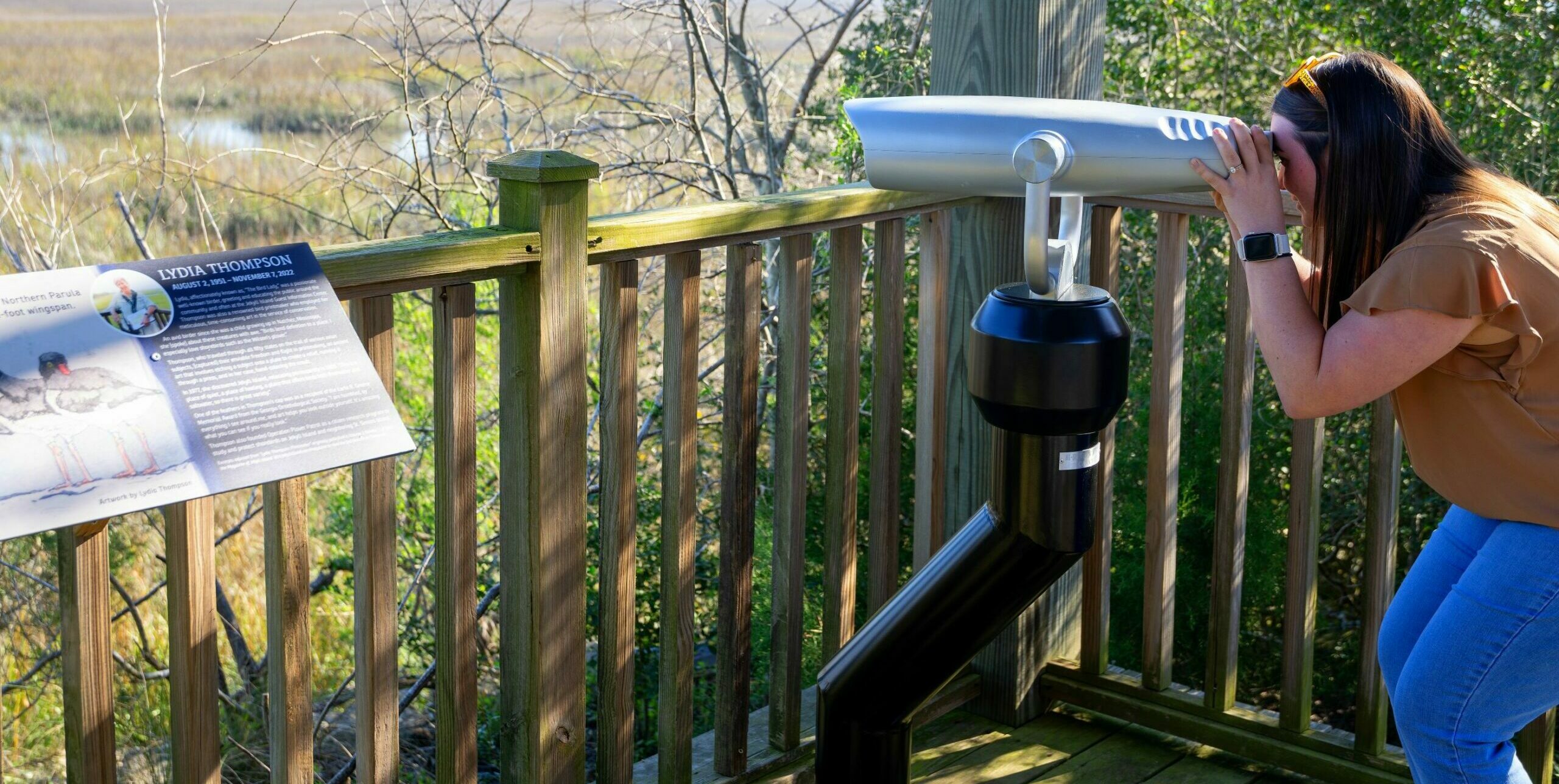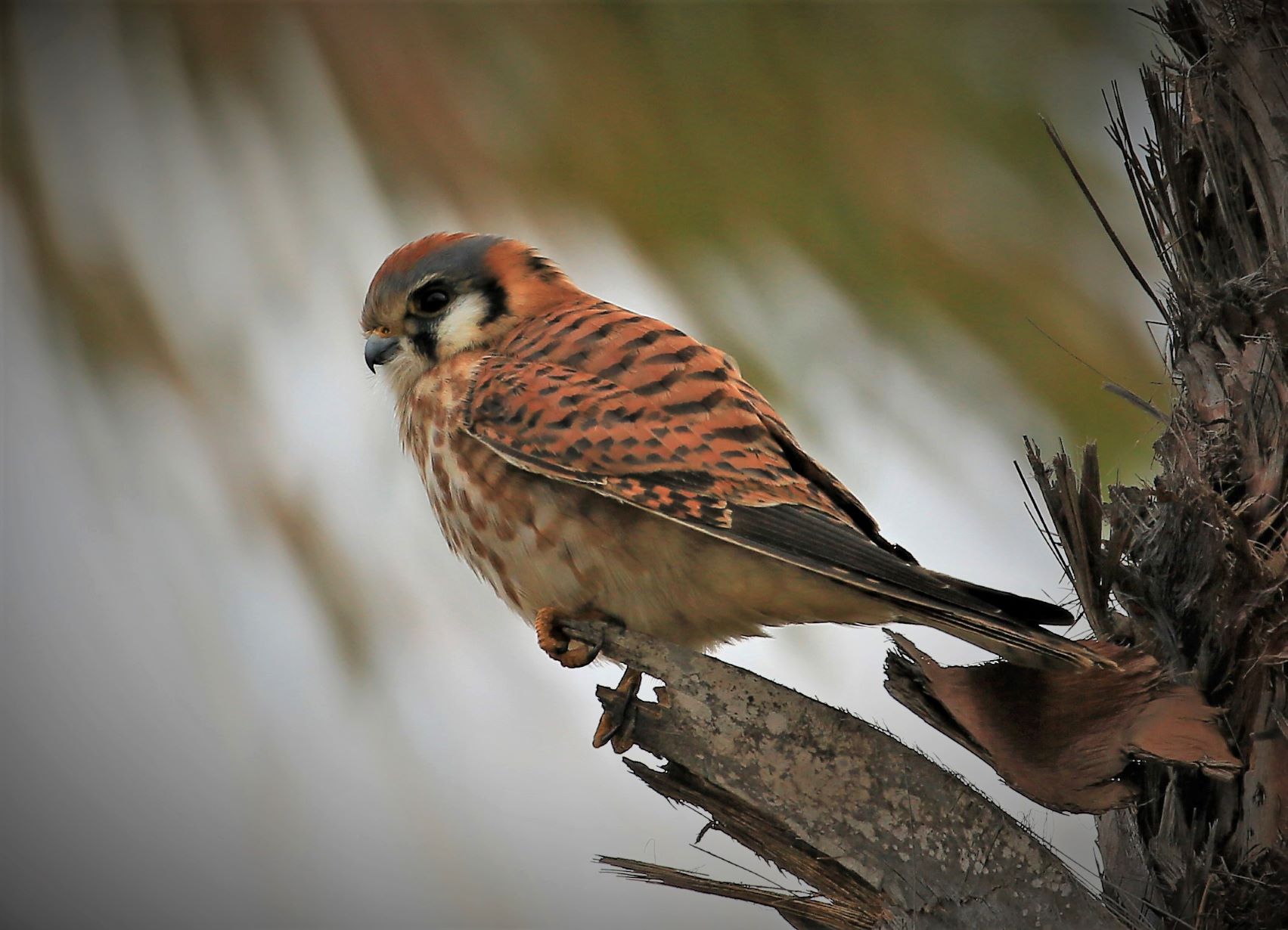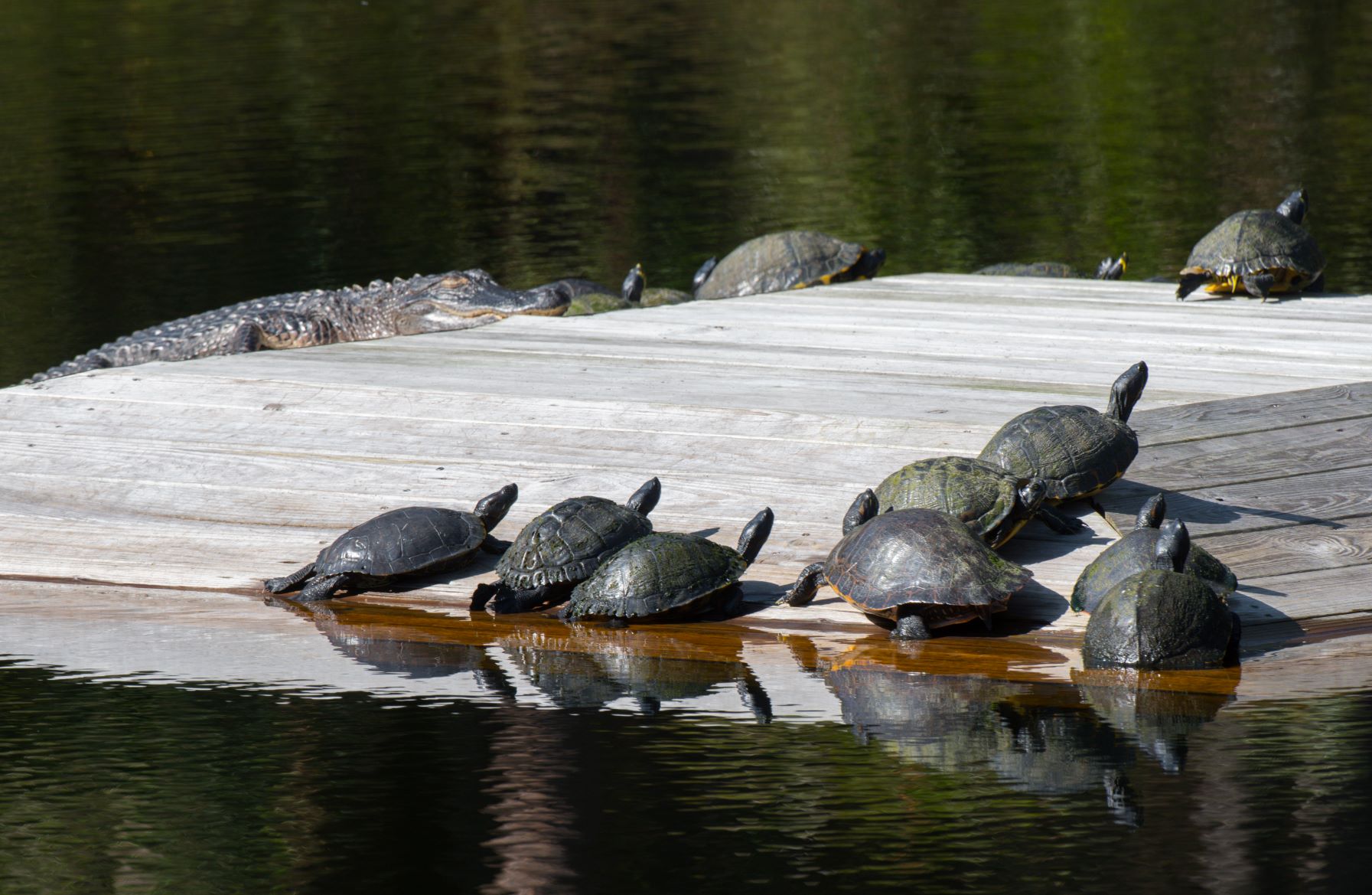by Yank Moore, Director of Conservation
Nestled behind the Jekyll Island Welcome Center, overlooking the golden hues of the coastal saltmarsh, stands a beloved observation platform—a haven for birders and nature enthusiasts alike. Originally funded through the Jekyll Island Foundation over a decade ago, this quiet retreat has offered visitors a place to pause, reflect, and take in the beauty of the island’s diverse bird species.
Now, thanks to a meaningful tribute, this cherished space has received an exciting enhancement with the addition of two spotting scope viewers, one on each level, allowing visitors to enjoy an even closer glimpse of the rich avian life that calls Jekyll home. The area is a popular destination for birders, drawn by the possibility of spotting American Avocets, Marbled Godwits, and Dowitchers—species that are less commonly seen elsewhere on the island.
These new additions are more than just an improvement to the viewing experience; they serve as a tribute to the late Lydia Thompson, affectionately known as the “Bird Lady.” Lydia, who passed away in late 2022, left an indelible mark on the birding community. A passionate advocate for avian conservation, Lydia traveled all 50 states in pursuit of her love for birding, founded Operation Plover Patrol to protect Jekyll’s shorebirds, and championed the belief that birdwatching is for everyone. Her dedication inspired countless individuals, and her impact continues to be felt through the organizations she supported.
Now, with these newly installed spotting scopes, Lydia’s legacy lives on. Every visitor who pauses at the platform, gazes through a viewer, and marvels at the birdlife of Jekyll Island is carrying forward her mission—one of appreciation, education, and conservation. Through the generosity of those who knew and admired Lydia, her spirit will forever be part of the landscape she so dearly loved.
Supporting Bird Conservation on Jekyll
The Jekyll Island Authority’s Conservation team has been dedicated to bird conservation through research, monitoring, and habitat restoration. The Jekyll Island Foundation has been a vital partner in supporting these efforts. If you’d like to contribute to bird conservation on Jekyll Island, click here.


